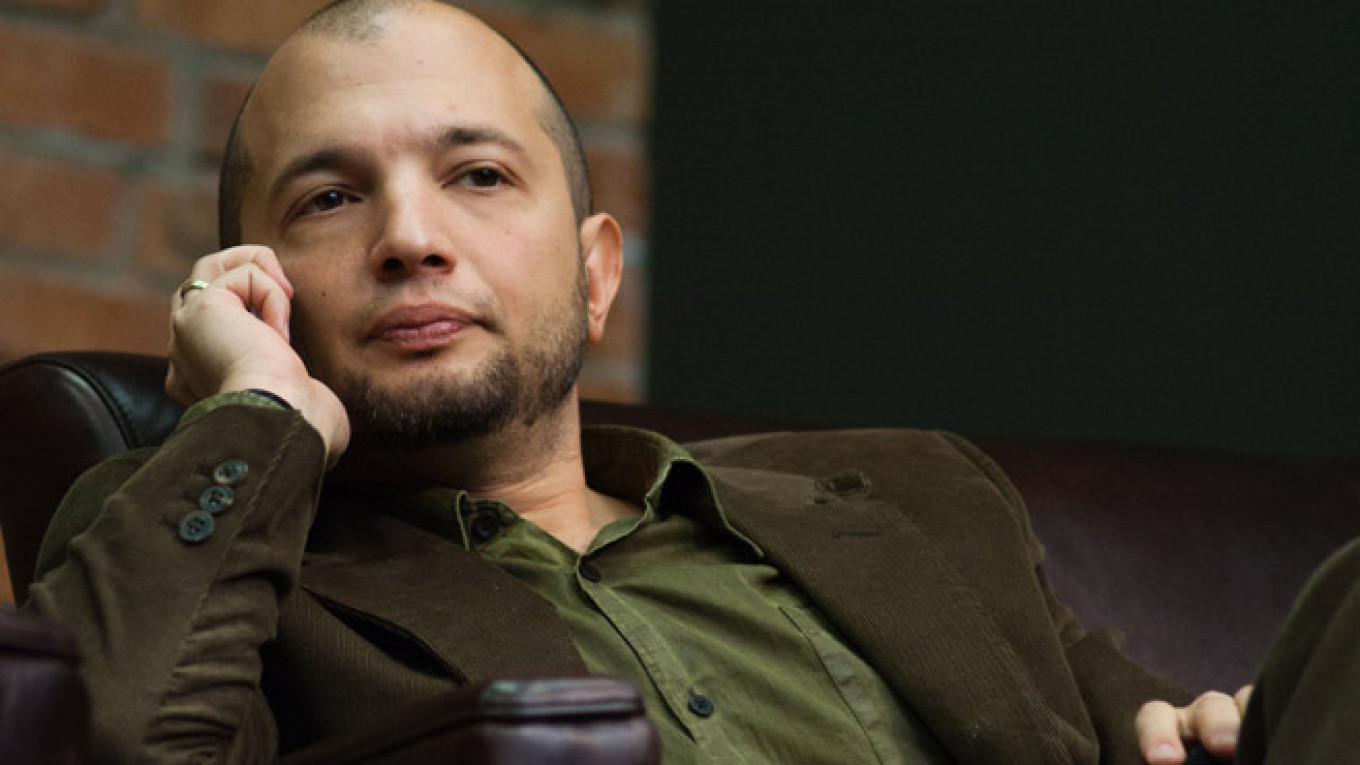The first Russian owner of The Moscow Times in its 23-year history said Monday he saw "huge potential" for developing the brand and rebuffed suggestions that an end to foreign ownership would compromise the newspaper's independence.
Finnish media group Sanoma announced Thursday that it would sell The Moscow Times, Russia's only English-language daily, along with a clutch of magazine titles in the country, including National Geographic and Men's Health, and a minority stake in influential business newspaper Vedomosti.
The buyer is Demyan Kudryavtsev, a 43-year-old Internet entrepreneur, former chief executive of Russian publishing house Kommersant and ex-business partner of Russian oligarch Boris Berezovsky, who died in London in 2013.
The sales come after Russia passed legislation last year forcing foreign entities to limit their stakes in Russian media firms to 20 percent, which may have put off potential foreign buyers.
In a telephone interview on Monday, Kudryavtsev said The Moscow Times was "a fantastic brand with a long history and a large, loyal audience," but that it is behind the times technologically and failing to meet the needs of consumers.
But the brand has "huge potential," he said, adding that he would "undoubtably" finance its development if necessary.
Still, Kudryavtsev intends on making money with The Moscow Times, which has in recent years been loss-making.
"This is a business deal," he said.
The Moscow Times, set up by Dutch entrepreneur Derk Sauer in 1992, has a print circulation of 35,000 in Moscow. The paper's website attracts one million visitors per month on average? — a number that has more than doubled over the past year.
History in Media
Kudryavtsev is no newcomer to the media and Internet industries. After returning to Russia from Israel in the 1990s, he co-founded Cityline, an Internet service provider that he has said sold for nearly $30 million in 2001.
He was appointed CEO of the Kommersant publishing house in 2006 by Berezovsky, the company's then-owner, and kept his position when another billionaire tycoon, Alisher Usmanov, bought Kommersant a few months later.
Kommersant then consisted of a newspaper and a number of weekly magazines on politics and business. Kudryavtsev developed the company as a multimedia platform, expanding its online presence and launching a radio station. He left in 2012 amid a spate of editorial departures from Russian media firms as the government responded harshly to coverage of street protests that erupted in late 2011 following disputed parliamentary elections. Kudryavtsev has denied that he was pressured into leaving the publishing house.
Kudryavtsev's deals with Sanoma will give him full ownership of The Moscow Times but only a 33 percent stake in Vedomosti, which is co-owned by Financial Times Group and Dow Jones, publisher of The Wall Street Journal.
Following the announcement of the sales on Thursday, Kudryavtsev wrote in an e-mail to Sanoma employees in Russia that it was "a huge honor and responsibility" to own the assets. He said he had no immediate plans to change their management.
Changing Landscape
Both Vedomosti and The Moscow Times were affected by the law on foreign ownership of Russian media, which appeared last year amid Moscow's confrontation with the West over Ukraine. The legislation was seen by many as an attempt by the Kremlin to increase its leverage over media bosses and boost its influence on editorial policy.
Vedomosti, which has a circulation of about 75,000, is read by Russia's political and business elite and respected for the quality of its coverage. The paper frequently publishes editorials critical of the Russian authorities and President Vladimir Putin.
Sanoma has been seeking buyers for its Russian assets since 2013 as part of a restructuring of its business. The value of the sales has not been disclosed, but the company said it would make a capital gain on the sales of about 8 million euros ($8.9 million) before currency translation adjustments. Russian media reports have estimated the value of the Vedomosti stake at 6 million euros ($6.7 billion).
Neither Financial Times Group nor Dow Jones has said they will sell their stakes in Vedomosti. Kudryavtsev has denied that he is in negotiations with them.
Ownership Concerns
Following the announcement last week, some commentators smelled a rat. "Kudryavtsev doesn't have money to buy newspapers and magazines," Leonid Bershidsky, a founding editor of Vedomosti, wrote on Facebook, urging Kudryavtsev to "reveal the names of the partners who put money into the purchase."
Kudryavtsev rebutted the claim, telling the RBC news agency that he was buying the assets without partners.
He also denied going to the Kremlin or other Russian authorities for approval before going ahead with the deal.
Asked by The Moscow Times whether Russian ownership would damage readers' trust in The Moscow Times, Kudryavtsev rebuffed the suggestion, saying his role was not to interfere with editorial decisions.
The Moscow Times has become no more vulnerable than it was before, he said, adding: "Russian authorities are perfectly able to pressure any owner."
Contact the author at p.hobson@imedia.ru
A Message from The Moscow Times:
Dear readers,
We are facing unprecedented challenges. Russia's Prosecutor General's Office has designated The Moscow Times as an "undesirable" organization, criminalizing our work and putting our staff at risk of prosecution. This follows our earlier unjust labeling as a "foreign agent."
These actions are direct attempts to silence independent journalism in Russia. The authorities claim our work "discredits the decisions of the Russian leadership." We see things differently: we strive to provide accurate, unbiased reporting on Russia.
We, the journalists of The Moscow Times, refuse to be silenced. But to continue our work, we need your help.
Your support, no matter how small, makes a world of difference. If you can, please support us monthly starting from just $2. It's quick to set up, and every contribution makes a significant impact.
By supporting The Moscow Times, you're defending open, independent journalism in the face of repression. Thank you for standing with us.
Remind me later.


